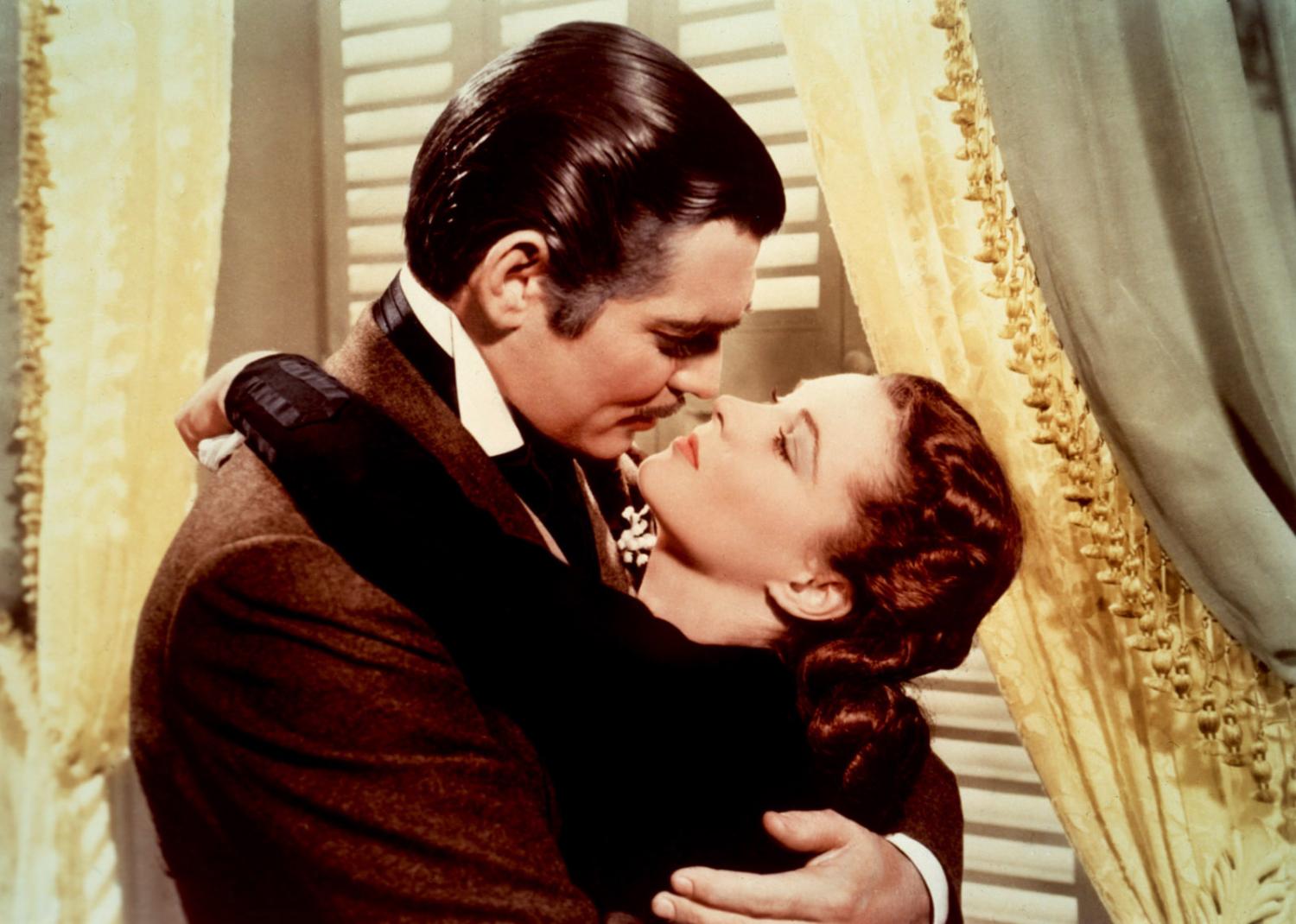NewzRoom Topics >
Grand Years 1 February 2022
The Great Love Scene: Rhett and Scarlett
Producer David O. Selznick’s acclaimed screen adaptation of Margaret Mitchell’s best-selling novel tells of the romance between the tempestuous Scarlett O’Hara (Vivien Leigh) and the dashing Rhett Butler (Clark Gable), against the tragic backdrop of the Civil War.
This legendary classic earned 10 Academy Awards, including Best Picture, Best Actress, (Leigh) Best Director (Victor Fleming), and Best Supporting Actress to Hattie McDaniel, the first Oscar ever awarded to an African American performer. One of the highest-grossing films of all time (when adjusted for inflation), it is also very much a product of its time, and unfortunately reflects depictions of characters and themes which are offensive and problematic when viewed by contemporary audiences.
Clark Cable, the handsome, macho ‘King of Hollywood’ was the first choice for Rhett; but almost every female star was considered for the wilful Scarlett O’Hara.
“I don’t want the part for money,” said Clark Gable to producer David O. Selznick. Gable was being offered the role of Rhett Butler in Gone with the Wind, but happily he ate his words. He accepted $2500 a week and $100,000 bonus.
A year later, Selznick made his decision for the female lead. When he saw the exquisite, green-eyed, twenty-five years old English actress Vivien Leigh, the search was over. A famous coupling was born.
"Rhett Don't, I'll Faint!"
Both characters were spirited, arrogant, self-centred and amoral. This is in marked contrast to Leslie Howard and Olivia de Havilland – Ashley and Melanie Wilkes.
Although Scarlett schemes her way to attract the fragile but aristocratic Ashley, she is irresistibly drawn to the virile Captain Butler – roguish black sheep of “the Charleston family.”
The directed sequence which deals with Rhett’s proposal of marriage to the already twice widowed Scarlett, is one of the most skilfully written. Butler is brief and to the point when he says, “I made up my mind that you were the woman for me, Scarlett, the first time I saw you at Twelve Oaks.”
When she objects to this approach, he sinks on one knee and takes her hand.
He said that, “A feeling more beautiful, more pure, more sacred … dare I name it? Can it be love?” Although he was play-acting, there is much truth in what he expresses. When she tells him she will always love another man (Ashley) … he takes her in his arms, bends her head back and kisses her hard on the mouth – again and again.
She struggles for air.
Scarlett: “Rhett don’t, I’ll faint.”
Rhett: “I want you to faint. This is what you were for, Scarlett.”
Naturally, the marriage of two such stubborn and tempestuous people is doomed. In the end, when Rhett decides to leave her, she sobs, “What’s to become of me?”
Turning in the doorway he replies, in one of the cinema’s most famous and well-remembered lines, “Frankly, my dear, I don’t give a damn.”
Rhett Butler's best lines ...
Adapted from Great Love Scene by Ronald Bergan; Octopus Books, 1986.
> Read More





